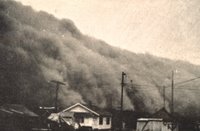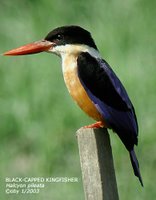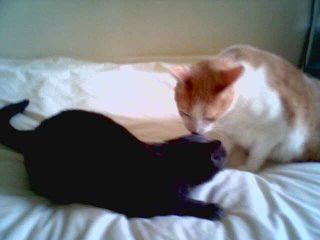The ELA test is our big focus now that we are back. We want to be 150% prepared so we can SHOCK everyone with our great scores. I will be staying many afternoons until 4 pm and offering indidualized tutoring. In addition we will meet the Saturday before the test, for a very important practice session, including how to budget our time and feel super confident!
Here are some good strategies to keep in mind, but mostly remember if you believe in yourself, anything is possible!
1.
Divide and conquer! Answer the easy questions first to build confidence. This will
also allow you to rack up as many points as possible right from the start. However,
always be sure to mark the questions you don't answer right away so you can go
back to them.
2.
Pace yourself. Check your watch from time to time to make sure you're pacing
yourself appropriately.
3.
When in doubt, guess. You at least have a chance that you might guess correctly.
4.
Don't let others distract you. Focus only on your own test. If others are writing and
you aren't, don't panic. If others finish before you do, try not to get nervous.
5.
Use any extra time to first make sure you've answered all the questions. Then, go
over the more difficult questions and read them a second time. Read essays
carefully to make sure you answered all questions and followed directions first and grammar second.
6.
Don't change your initial answer unless you have a good reason to do so;
research indicates that 3 out of 4 times a first choice was probably correct.
Welcome to my web page. This page is especially designed for students to improve their language skills and become engaged learners. Have fun and never, never stop learning, I haven't! "Para triunfar, hay que trabajar duro, trabajar duro y trabajar duro." -Francisco Cárdenas. "Nothing ever comes to one that is worth having except as a result of hard work...and enthusiasm" -Booker T. Washington"
Friday, December 29, 2006
Monday, December 04, 2006
HOMEWORK SCHEDULE
This a schedule of homework that is due in the different subjects. You must still check with your math, science and other social studies teachers their homework assignments. Also, don't forget to use the links here to practice grammar and math, I will give you points! This is a week's worth of assignments so you can get ahead. Reading is something you must always do for 2 hours a week. Yes, you get a grade for homework and as you know it does become part of the classwork as well. Just like in sports, dance or anything you want to get good at it (even video games!) practice pays off!
1) Literacy/Humanities Homework:
Connect the corrected autobiography sections, write a table of contents and choose photos or other pictures for your cover and for the inside pages. Do not forget to include your timeline and adjective web.
2) Social Studies Homework (8th graders):
Explain how your research topic connects to the forming of the United States. Add to your graphic organizer, complete your table of contents and hand in another sample of paraphrasing. Draw or print maps and pictures to share. Last day for presentations is Friday.
4) Vocabulary:
Finally, everyone needs to hand in 15 sentences with the spelling words by Thursday.
1) Literacy/Humanities Homework:
Connect the corrected autobiography sections, write a table of contents and choose photos or other pictures for your cover and for the inside pages. Do not forget to include your timeline and adjective web.
2) Social Studies Homework (8th graders):
Explain how your research topic connects to the forming of the United States. Add to your graphic organizer, complete your table of contents and hand in another sample of paraphrasing. Draw or print maps and pictures to share. Last day for presentations is Friday.
4) Vocabulary:
Finally, everyone needs to hand in 15 sentences with the spelling words by Thursday.
Wednesday, November 29, 2006
Friday's Vocab
VOCABULARY TEST
Please practice your vocabulary for Friday:
Obscure - vague or unclear
Deftly- skillfully
Subjugation - the act of keeping others under one's control
Also you will be writing and defining three vocabulary words that you learned in your independent reading.
GOOD LUCK :)
Please practice your vocabulary for Friday:
Obscure - vague or unclear
Deftly- skillfully
Subjugation - the act of keeping others under one's control
Also you will be writing and defining three vocabulary words that you learned in your independent reading.
GOOD LUCK :)
Saturday, November 11, 2006
The New Marking Period

This marking period we will be focusing on our writing and reading skills because we are going to do even better than our best on the NY State ELA test. All students are to complete a short story which reflects the kind of life that the characters in our book, The Pearl, are leading. A life without electricity or other modern conveniences. A first draft will be due by November 17th. We are also working on a second major project which is our autobiographies. When we finish the Pearl we will be reading, Out of the Dust, a memoir by Karen Hesse. The photo above is of a powerful dust storm in Kansas in 1935, the time period that author Hesse writes about in that memoir.
In order to receive a 3 or 4, remember the following writing rubric:
* The writing piece opens with a "hook", which is an opening that makes the reader interested right away.
* There are few grammar, spelling, or punctuaction errors and none in the re-write.
* The sentences and paragraphs flow well, following a logical sequence.
* Characters are well developed and there is dialogue included.
* The writing is supported by details and the writer successfully creates images with the details.
* There is a strong conclusion that brings the story together in the end.
Reading is harder to measure, but we can and do! So keep up your book logs, which should be kept at home and in class. Remember there are three reading responses, minimum, due per week, see samples in earlier posts below. One of these should be a book talk (if you are too shy to present the book talk you must still fill in the form below and either myself or another student will share the information for you).
REQUIREMENTS OF A BOOK TALK
• Title of the book
• Author of the book
• Information about the author
• Summary of the book so far
• At least one connection to the book – Text to self – Text to text – Text to world (or a prediction, or changed ending)
• Recommendation to other readers
Monday, October 16, 2006
How to get an "A" in literacy!

Read at least 2 hours every week and hand in responses (samples below).
Every time you read, even at home, update your daily independent reading log. It should like like this:
Daily Independent Reading Log
Date*Title*Page*Start*Page*End*Completed Date
************************************
Here are some sample responses.
Literary Letter on Tar Beach
9-15-02
Dear Diana,
I am reading Tar Beach by Faith Ringgold. I will be done reading it today, because it is a really short picture book for kids. At first I felt weird reading a kid’s book, but I could really see the connections between this book and the unit we are studying in American history class. I also chose this book because it reminds me of New York City, where I am from. In the book a little girl named Cassie Louise Lightfoot pretends she can fly over all the tall buildings and bridges in New York City. She lies on the roof of her apartment building in Harlem while her parents are up there having a party with their friends. She looks out at the sky and imagines herself up with the stars—this is a very nice image—like she is free. I always wanted to be able to fly when I was little and imagined that I could fly away home when I was having a bad day at school. I bet I am not the only one who did this. This is a very good book, because I can relate to the story even though it describes an experience Cassie had a long, long time ago (in the 1930s!). It makes me think differently about the history I am studying, too—like real people were part of history—not just wars and dates and famous men.
Yours truly, Maria
***********************************
Response to Ziggy
I am reading Ziggy and the Black Dinosaurs by Sharon Draper. On pages 43–44 Jerome is taking with his grandmother. I like this part of the story because it reminds me of times when I would talk to my grandmother when I was a little kid. Like Jerome’s grandmother, my grandmother used to tell me stories about the history of my family. I really liked to hear the stories that she told me.
************************************
VOCABULARY FOR ZIGGY (Mystery Genre)
You need to have index cards for all the following words. Look up definitions in your dictionaries and we will review in class.
fierce, investigate, character, excavation, originate,
convey, physique, trauma,reconstruct, specify, durable,
modify, constant, commute, incredibly, excursion, lapse,
distorted, suspense, retrieve, placid, explode, prefix, velocity, acrid
Saturday, October 14, 2006
It's Almost Report Card Time!

Please continue to review your science, especially the invertebrates and vertebrates, definitions and examples. Also be prepared to explain what adaptation is and how it relates to both predators and their prey. Finally, you should be able to identify major parts of the cell and identify three one celled animals. The quiz is Tuesday!
I have added more sites. Don't forget to practice the U.S. Map site it is fun and you will learn a lot.
Seventh graders you have until Wednesday to finish all the questions through page 51. We will go over answers then and have a quiz on Friday. The question pages I need handed in are the matching answer pages, and you do not have to write out the whole question, but you do have to identify the page number. This Thursday you must hand in two essays based on the "find outs" in your book or another topic related to the material but approved by me.
Have a nice weekend, do not forget to read. By October 31st when I do grades I will be checking your book logs and reading responses to ensure that you have read a minimum of 2 hours a week or I can't give you an "A" in literacy.
Oh! Be prepared to present your ideas for a newscast!
Saturday, October 07, 2006
HAVE A GREAT WEEKEND!!

Do not forget the trip slips for Tuesday, and lunch if you want to bring your own. If you lost your slip, have your parent write a note saying you can go, but they must sign the note. NO SE OLIVDEN LOS PERMISOS PARA EL PASEO.
Here is the science study guide again, for those who need it. The test will be Wednesday, since we have the trip Tuesday.
October 2006 Science Study guide
Vertebrate - An animal with backbones.
Invertebrate - An animal that does not have a backbone.
Ecology – The study of interactions of organisms and their environment.
Habitat – The place where an organism lives.
Cell – The smallest, most basic unit of life.
Food chain – A way of showing how food, and energy passes through a community of organisms. Example: The sun gives energy to plants. Plants are producers. Plants give energy to primary consumers, insects. Primary consumers give energy to secondary consumers, small birds, frogs, or rabbits. Secondary consumers give energy to tertiary consumers, humans, wolves, bears, and tigers.
Producer – Organism that makes its own food.
Predator – Organism that kills and eats another organism.
Prey – Organism that is killed and eaten by another organism.
Adaptation – A trait that helps an organism survive in its environment.
These are examples of adaptations:
Claws Camouflage
Small feet Hard-shell
Big feet Poison
Sharp teeth Porcupine Needles
Opposable thumb Keen sense of hearing, smell, and sight
There are 5 kinds of vertebrates
Amphibian
Reptile
Mammal
Bird
Fish
There are 5 kinds of invertebrates
Mollusk
Arthropods
Sponge
Worms
Cnidarians (for example, jellyfish)
Other homework:
6th graders have a sheet from Mr. Bruce to complete for social studies.
7th graders: start to memorize the second paragraph on page 85 of the American Govt. book (end with the word equal).
Everyone: Write 4 sentences with count and non count nouns, begin with I have a lot of....or I have some..., end with in my house. You can also use much or many in your sentences.
Finally, please complete the articles worksheet below.
ARTICLES (a, the, etc.)
Sunday, October 01, 2006
We are still studying animals...

What are three characteristics that may be adaptations for this Black Capped Kingfisher? How might these adaptions help this bird in his environment?
And now onto a community issue...equally important because if we feel comfortable and safe in our class then and only then will optimal learning take place.
The excerpt below is from www.facinghistory.org and written buy a self-proclaimed middle school bully. (Self-proclaimed means he himself admits to having been a bully.) That is why he was able to change, because he admitted his mistakes first. My students know that the well-being of all in my class is a huge priority for me. Sometimes as a teacher it is hard to know if I am reaching everyone I need to reach, so I thought it would be good for you to hear the words from someone your own age.
I Faced History and Found Myself
Cleveland, Ohio-‘I was known as the class bully, taking my title so far that once I nearly broke a kids arm,” recalled Jonathan Lykes about his behavior in middle school. That changed when Jonathan took teacher Lori Eiler’s Facing History class as a 9th grader at Shaw High School in East Cleveland.
“I faced history and found myself,” he now says.
Through Facing History’s approach to studying the Holocaust, Jonathan learned about concepts such as “bystander,” “upstander,” and “universe of obligation.” He began to realize he wanted to care about more than just himself, to give up his attitude of indifference. Jonathan was also inspired by Facing History resource speakers, including Holocaust survivor Max Edelman, South African Constitutional Court Justice Albie Sachs and Carl Wilkens, the only American to stay in Rwanda after the genocide began. These speakers inspired and encouraged Jonathan to take a stand against injustice.
Last spring Jonathan wrote a poem called “Perception” about how prejudice influences our decisions about helping others. It won a regional poetry contest sponsored by the Cleveland Playhouse. Jonathan then went on to participate in a national contest and placed 12th. On October 25th Jonathan, who is now a junior at Shaw, will speak at the First Cleveland Benefit Dinner at the Intercontinental Hotel.
Perception [excerpts]
by Jonathan Lykes
How do they see me?
How do I see them?
For I noticed that there is this thing called perception
that gives people the opportunity for acception
or, on the flip side,
to be in the circle of rejection.
All different types of sections and cliques
making fun of that person and talking bad about this person,
so I ask you what is your outlook on things?
So many different stereotypes
and all types of legal rights
being violated just because you look this way or act that way,
and you’re telling me it’s OK
to give a blind eye to the less fortunate
simply because they’re beneath you....
What you need to do is stop judging others....
Perception. For one second make an exception
and listen to a person younger than you,
not really wiser than you.
Give me a minute I just might surprise you.
Perception. Now I see people plagued with this lasting infection
of carelessness once we face history and look it in the eye.
It’s an embarrassment.
Yes, I do realize good intentions meant, but we still went wrong on our courage to have the right perception.
TEST: You see an Arab man; he comes and sits next to you on a plane.
Your heart pounding, your mind going insane,
you automatically think he’s there to bring pain,
out to terrorize all for “Allah’s” gain.
But what’s going to put you to shame is that he never hurt a soul in his life,
has three kids and a wife.
And, on the Fourth of July, with everyone else he sings, “I’m proud to be an American…”
Wrong perceptions…
tend to hurt ....
What is your perception?
(see the rest of Jonathan's poem at www.facinghistory.org)
Tuesday, September 26, 2006
Keep up the good work!

Is this butterfly a vertebrate or invertebrate? What does the "in" prefix mean in this case?
I have finished entering most of your grades so far and we are off to a great start. Remember, homework gets a grade too and is an important part of the learning process
7th grade social studies students please keep working in your text books. You should read up to page 22 by the end of the week and answer the pages with questions and journal entries. (You do not have to write the sentence, just the answer but be sure to put a complete heading each time and let me know what page number you are working on.)
EVERYONE don't forget you will be graded on the 2 hour weekly reading requirement. You all know what a reading response is from class, but ask if you do not remember. I will be posting examples soon. (You can write a letter to the author, make predictions, change the ending, add a character, etc.)
Review the scientific method, think about our sugar experiment, review vertebrates and invertebrates, there will be a quiz!!
Para los que hablan mejor el español, esta bien si leen en español en la casa, lo importante es que esten leyendo! Pero si me escribes el resumen en español hay que traducir en ingles lo que pueda.
DON'T FORGET YOUR MATH HOMEWORK - NO SE OLVIDE LA TAREA DE MATEMATICAS
AND VISIT THE WEBSITES LISTED HERE, THEY WILL HELP YOUR GRADES! (Do you have a site to suggest?)
Saturday, September 23, 2006

Congratulations to Juan Suero, Jordany Aquino and the others who guessed correctly that the landmark in the first photo was the Empire State Building. Does anyone remember the names of the two in this picture?
CHECK OUT THE NEW LINK- IT IS A GAME THAT WILL HELP YOU LEARN THE STATES' NAMES AND LOCATIONS
HOME WORK FOR THE WEEKEND 9/23-9/24:
Science: Complete the chart from class about vertebrates: Fish, Mammals, Reptiles, Amphibians, and Birds, are the categories, and you need to think of two ways at least to describe each. For example, we listed hair and fur under mammals. LOOK in your book for help. Page 84 is a good place to start, also page 145.
Describe los animales que tuvimos en la pizarra: dos caracteristicos para cada categoria. Por ejemplo, los repitlos tienen muchos colores y ?
Read, read, read. HAY QUE LEER y ademas puede ser divertido. 2 hours a week is the requirement so if you did not read for 2 hours at home this past week then get your self comfortable with book, the paper, a magazine....and catch up. You will need to write down the pages and title, and write a review (resumen) so I know that you have read.
7th graders- answer the question about Native Americans on the bottom of page 8 (you can answer in list form if that is easier for you) remember you must choose two Native American groups (one can be the Lenape and you can use the link I have here to Wikipedia to find out about them.)
6th graders-study for your test on geography, you must known the 5 themes of geography, the words to know from Chapter one, and latitude and longitude. (Hay una prueba el lunes de geographia, lee el capitulo 1)
AND do something fun this weekend because I will want to hear about it Monday morning during our meeting!
Sunday, September 17, 2006
Welcome

Welcome to Class 172, my email is 172globe@gmail.com and I am happy to answer and questions from students and/or parents there. Please remember to return all forms the school has given you. This blog will soon have homework assignments and even displays of student work!
The link of the week is http://www.wikipedia.org/ this is a free encyclopedia available in many languages.
Please note that students are always required to read a minimum of 2 hours per week. We have a large assortment of books in the classroom that may go home but they can also read comic books, newspapers, etc. (as long as they are reading!) Thanks and I am looking forward to a wonderful and productive year!
Subscribe to:
Posts (Atom)